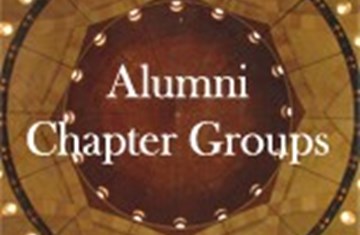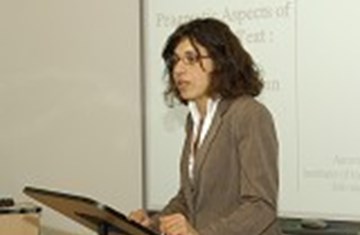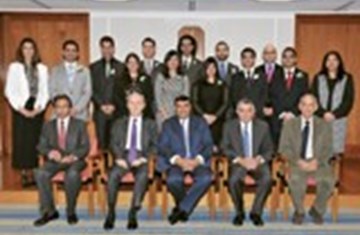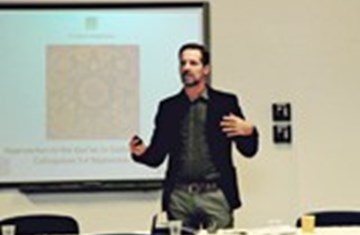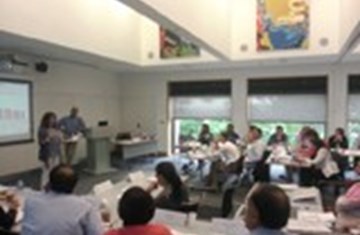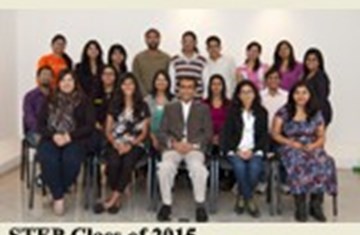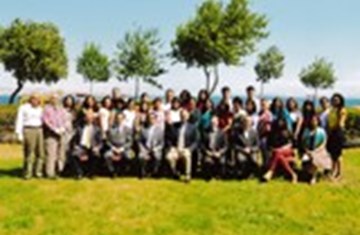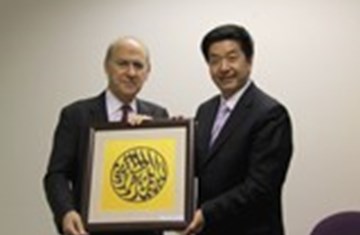Introductory Remarks to Contemporary Islams & Muslim (s) Lecture Series: Feminisms and Islams
We propose in this new series of lectures to engage with Muslim encounters with modernity - in the arts and culture, in political pluralism and human rights, in spirituality and the interpretation of scripture.
There is a growing interest among scholars and policymakers in the idea of 'alternative modernities', and how this relates to multiple Islams - especially after 11th September 2001. The 'Islam & democracy' debate that picked up with the end of the Cold War was quickly joined by this fresh interest in Muslim modernity.
Aziz al-Azmeh came out in 1993 with his influential 'Islams and Modernities'. Ramin Jahanbegloo's collection, 'Iran: Between Tradition and Modernity' (2004) offered rich readings of the complexity of what it means to be modern. Keith Watenpaugh broadened the locus of that discussion in his elegant 'Being Modern in the Middle East' (2006). Meanwhile, Charles Taylor's seminal 'A Secular Age' (2007) is poised to enrich the philosophical discourse on plural (and pluralist) modernities.
It is on this canvas that our series will have a distinguished line-up of speakers in the coming year. They include Prof. Tavakoli-Targhi of the University of Toronto, Prof. Sami Zubaida of London University, Dr. Ismail Serageldin of the Library of Alexandria, Dr. Amira Bennison of Cambridge University - and next month, Raficq Abdulla, MBE, on the poetics of modernity.
But it seems appropriate to begin our exploration with the subject of gender. Women are - by default and by choice - the target of ideological, religious, economic and cultural wars, even when the warriors are entirely men. But more and more, the warriors include women themselves.
Some would argue it has long been so. Perhaps it all began with a woman's determination to be an apple consumer in the Garden of Eden, and then do a promotion for the benefit of her mate.
In the same fiercely independent spirit, Azizah al-Hibri observes: 'Why is it oppressive to wear a headscarf, but liberating to wear a miniskirt? The crux of the explanation lies in the assumptions each side makes about the women involved and their ability to make choices' (Okin, Is Multiculturalism Bad for Women, 1999). In other words, the issue is agency.
In Egypt and Turkey, Muslim students and office workers have time and again insisted that their choice of wearing a headscarf is not about 'retreating' from a full social engagement with their surroundings, but taking control of the terms in which that engagement happens. Again, young women in France, Britain and Canada often insist that 'Muslim dress' - from hijab to jilbab and sometimes niqab - is about publicly asserting a cultural identity that is intimately tied to religion.
For liberal feminists generally, gender equality must trump freedom of religious practice because patriarchy is a key feature of religious traditions at large. The larger clash for them as liberals, of course, is that taking religion seriously in a secular age is simply anti-modern, and not just as a rhetorical matter but as a question of social justice: this brand of civil modernity is cast as the only route to individual dignity and liberty.
Other liberals, like Martha Nussbaum (Okin, 1999), argue that religious freedom is at the heart of pluralist democracy, because it is all about how individual citizens and communities create and live their conception of the good, both civil and private. For Nussbaum, liberal values like equality are vital political goods - but they are not comprehensive moral ends. Ultimately, then, we must make room for plural modernities, instead of setting up a false clash between Tradition and Modernity.
For Max Weber, industrialised society opened the way not only to capitalist modernity but also to the defeat of patriarchy - and of traditional religion, as opposed to the supposedly unique Protestant ethic. This has fed the dominant Western feminist premise about secular gender modernity.
Yet the 'daughters of Shehrazad', as the Iranian scholar Farzaneh Milani casts them in Veils and Words (1992), have narratives that are many and varied and do not fit tidily into a dominant Western template. Perhaps the drift is best captured in the sociologist Nilufer Gole's formulation of the 'forbidden modern' (1996) - the sophisticated veiled female, who threatens not only Kemalist secularists in Ankara, but also Jacobin secularists in Paris.
But if agency is the key to assorted feminisms, then how do we respond to choices that appear to be shaped by the 'agency of patriarchy'? What about other 'qualifiers' of agency?
To reflect on these and other vexing issues, we have with us today a particularly distinguished daughter of Shehrazad, Prof. Haleh Afshar, OBE

